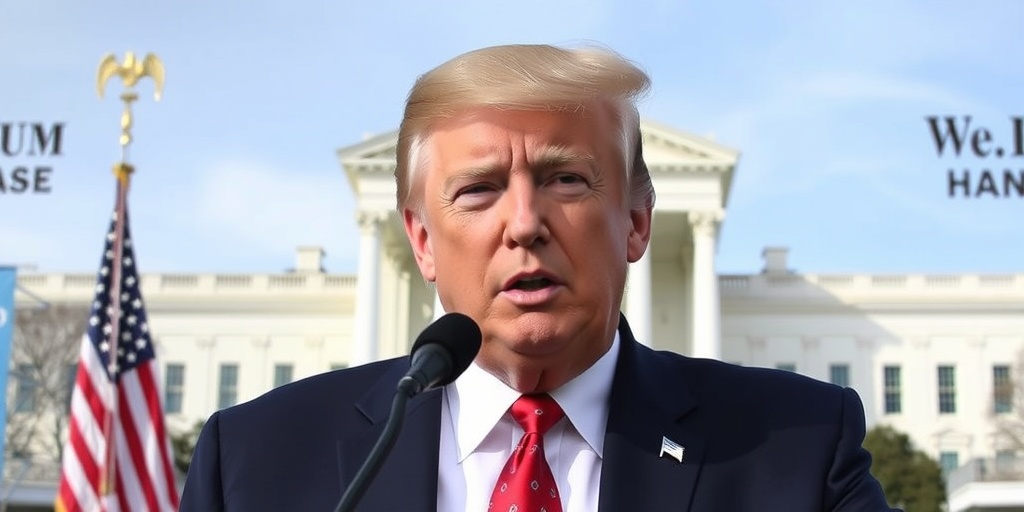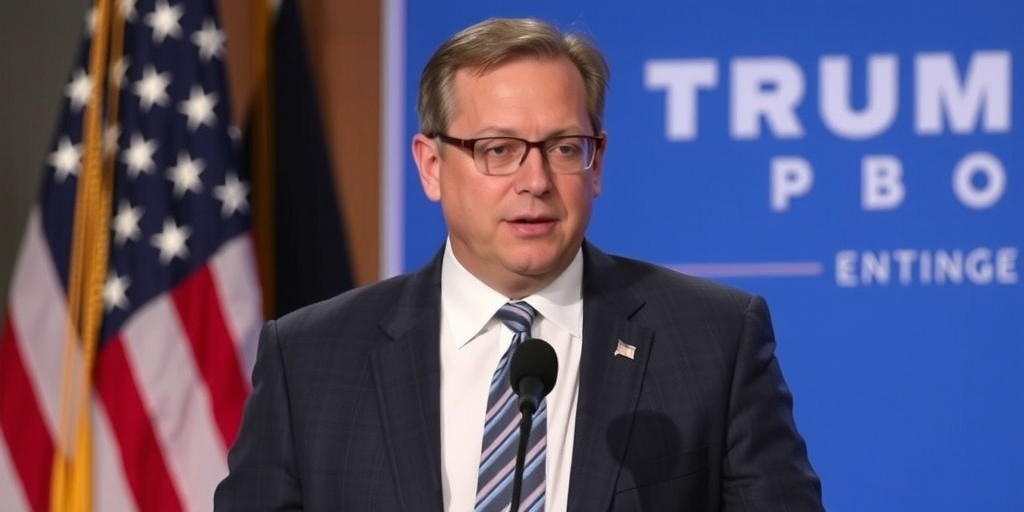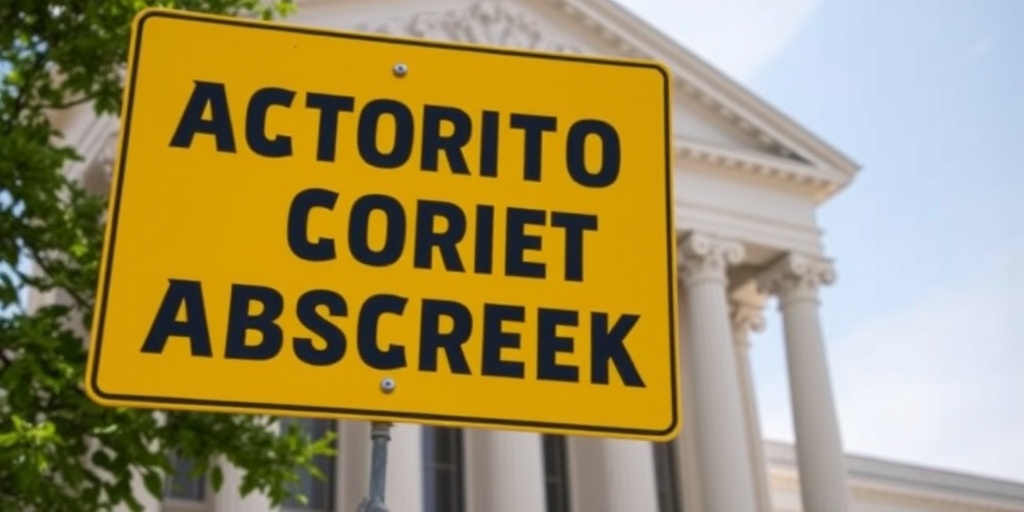Now Reading: Appeals Court Allows Trump to Dismiss Heads of Two Independent Boards
-
01
Appeals Court Allows Trump to Dismiss Heads of Two Independent Boards
Appeals Court Allows Trump to Dismiss Heads of Two Independent Boards

A federal appeals court ruled on Friday in favor of President Trump’s initiative to exert stronger control over independent agencies, allowing him to dismiss the leaders of two critical administrative boards that address employment issues and labor disputes. This ruling poses a significant challenge to the Merit Systems Protection Board (MSPB), which manages federal employment disputes, especially during a time when thousands of federal employees have been laid off. The decision also disrupts the National Labor Relations Board (NLRB), which plays a vital role in labor relations, especially following Trump’s recent actions to dismantle collective bargaining agreements impacting hundreds of thousands of federal workers.
The judgement reflects a broader endorsement of Trump’s expansive interpretation of executive power, with many legal experts predicting that the case could eventually escalate to the Supreme Court. Such a ruling could have profound implications, potentially placing various agencies that were intended by Congress to operate independently under presidential authority.
The ruling, which passed with a narrow 2-to-1 vote from the U.S. Court of Appeals for the District of Columbia Circuit, overturned decisions made by lower district courts which had previously reinstated Cathy Harris, an official from the MSPB, and Gwynne A. Wilcox from the NLRB, while their respective cases were being processed. Trump dismissed Ms. Wilcox in January and Ms. Harris in February, both claiming their terminations were improper.
Judge Justin Walker, who was appointed by Trump in 2020, expressed in his opinion that the president faces irreparable harm as long as the lower court’s injunctions remain active because he is being denied the constitutional authority that rests solely with him. Judge Karen L. Henderson, appointed by former President George H.W. Bush, concurred with this viewpoint.
In response to the ruling, Ms. Harris filed a motion requesting that her removal be postponed until the full appellate court in D.C. could review the appeal. Without Ms. Wilcox, the NLRB comprises only two members, thus rendering it ineffective, as it requires three members to function. Similarly, the MSPB will be left with only one member without Ms. Harris.
Experts are raising alarms regarding the implications of the court’s decision. Donald F. Kettl, an emeritus professor at the University of Maryland specializing in civil service, emphasizes that this ruling will substantially aid the administration’s efforts to weaken labor regulations and overhaul the civil service system, enabling rapid advancement towards its goals.
Earlier this month, Ms. Harris had ordered the reinstatement of a significant number of probationary employees who were terminated in February as part of Trump’s larger strategy to reduce the federal workforce. This coincided with Trump’s dismissal of Hampton Dellinger, head of the Office of Special Counsel, the independent agency that oversees the merit protections board. Dellinger had been investigating the firings of these probationary employees. Following the appellate court’s ruling, Dellinger withdrew his challenge against his termination.
The individuals leading the Office of Special Counsel and the labor and merit protection boards are nominated by the president and subsequently confirmed by the Senate. In a dissenting opinion, Judge Patricia A. Millett, who was appointed by former President Obama, argued that the majority decision conflicts with rulings from at least two other circuit courts.
Judge Millett pointed out that this ruling represents a historic first where a court of appeals, or the Supreme Court, has permitted the removal of members from boards designed to function with multiple adjudicators and protected by removal restrictions that the Supreme Court has upheld unanimously on two occasions. She criticized the prevailing opinion as a rushed assessment that puts millions of employees and employers at risk of being trapped in legal ambiguity concerning their employment disputes.
Following terminations, the Trump administration informed the dismissed probationary employees that their options for appealing to the MSPB were greatly restrictive. Government lawyers further contended that the dismissed employees and their labor unions lacked the standing to file complaints in district court due to the congressional design of the MSPB and similar bodies which were intended to resolve such issues.
In Northern California, Judge William H. Alsup raised concerns about how the administration could justify such dismissals in light of the significant undermining of the Office of Special Counsel and MSPB. Judge Alsup is overseeing a case involving labor unions that are contesting the mass firing of probationary employees. He warned that the lack of sufficient members on the merit protection board would leave these employees without any recourse.
The ramifications of this ruling are still unfolding, as stakeholders continue to assess the potential impacts on federal employment and labor relations as the legal battles progress.
Stay Informed With the Latest & Most Important News
Previous Post
Next Post
-
 01New technology breakthrough has everyone talking right now
01New technology breakthrough has everyone talking right now -
 02Unbelievable life hack everyone needs to try today
02Unbelievable life hack everyone needs to try today -
 03Fascinating discovery found buried deep beneath the ocean
03Fascinating discovery found buried deep beneath the ocean -
 04Man invents genius device that solves everyday problems
04Man invents genius device that solves everyday problems -
 05Shocking discovery that changes what we know forever
05Shocking discovery that changes what we know forever -
 06Internet goes wild over celebrity’s unexpected fashion choice
06Internet goes wild over celebrity’s unexpected fashion choice -
 07Rare animal sighting stuns scientists and wildlife lovers
07Rare animal sighting stuns scientists and wildlife lovers




















